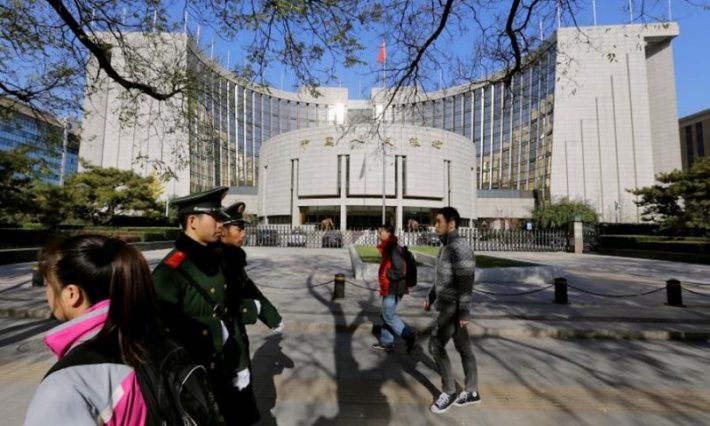Financial markets rose on the coattails of the stimulus measures unveiled by China as the world’s second-largest economy struggled to contain the impact from the coronavirus epidemic. China’s Ministry of Finance announced cuts in corporate taxes and fees aimed at reducing the burden on enterprises and individuals, promoting epidemic prevention and control, and driving economic growth.
Trade of the Day: Stocks and futures edge higher on China stimulus moves; gold and yen ease.
Quote of the Day: “The 2020s are already feeling like a turbo-charged version of the last decade. Crunch time will be when central banks feel compelled to normalize policy on concerns of asset bubbles and market stability,” said BofA Securities.
Stock of the Day: Qilu Expressway and Chengdu Expressway fell by 4-5% after Beijing announced toll waivers to facilitate the return of workers from the New Year holiday break. The hit to earnings and credit metrics worried both equity and credit analysts. “For Chinese toll road operators, this is clearly credit negative because their operating cash flow will come under pressure from the new toll-free policy, which is part of the government’s relief measures in response to the coronavirus outbreak. We expect the government to introduce measures to compensate the toll road operators for the lost revenue, but the magnitude, timing and duration of such measures is not certain at this point,” said Ivy Poon, Moody’s analyst.
Number of the Day: 35%. OPEC countries production of total liquids output worldwide despite controlling 70% of the world’s proven oil reserves. BofA Securities said this trend is likely to worsen over the medium term thanks to a very robust pipeline of deepwater projects in non-OPEC countries and continued growth from US shale. In the 2020-2025 period, non-OPEC will likely develop roughly 40bn boe of liquids reserves from major projects, compared with less than 10 billion boe for OPEC upstream projects, it said.
Tip of the Day: “We believe the willingness to buy more expensive phones over time is part of China’s general trend of a ‘consumption upgrade’ driven by rising income. We foresee a ‘super’ 5G smartphone upgrade cycle in China, which would benefit Chinese telcos, AAPL (and its supply chain), QCOM, TSMC, MTK and WIN,” said Jefferies analyst Edison Lee.
Financial markets rose on the coattails of the stimulus measures unveiled by China as the world’s second-largest economy struggled to contain the impact from the coronavirus epidemic. China’s Ministry of Finance announced cuts in corporate taxes and fees aimed at reducing the burden on enterprises and individuals, promoting epidemic prevention and control, and driving economic growth. This was followed by a 10 basis point reduction in the rate on the one-year medium-term lending facility to 3.15% by the People’s Bank of China, in a move expected to reduce long-term borrowing rates. This is a harbinger for the lowering of the benchmark loan prime rate, which will be announced later this week.
“The PBOC had already lowered the rates on its short-term reverse repo operations by the same amount two weeks ago. But today’s move helps to ensure that the longer end of the interbank rate curve also declines. It is the second MLF rate reduction this easing cycle, after a five-basis point cut last November,” said Capital Economics in a report published after the decision.
“Today’s MLF cut makes it even more likely that the Loan Prime Rate (LPR), set by bank quotations which are in turn determined by a spread over the MLF rate, will decline when it is published on Wednesday. Since the interest rate on most new and outstanding loans are now linked to the LPR, this will directly feed through to lower borrowing costs.”
The MSCI Asia Pacific ex-Japan index edged up 0.17%, the Shanghai composite index jumped 2.28 % and the Hang Seng index advanced 0.52% on strong gains by the healthcare, consumer cyclicals and basic materials sectors. But Japan’s Nikkei 225 index dropped 0.69% after a shock 6.3% plunge in the fourth quarter from the previous quarter. Analysts said the world’s third-biggest economy was hit badly by the sales tax hike implemented last October.
“The Bank of Japan [BOJ] reacted to recession risks every time during the past seven years since Abenomics was established,” said Ma Tieying, DBS economist, adding that given the latest outbreak of COVID-19 and its ripple effects on Japan, one more quarter of growth contraction in 1Q20 is possible.”This time, if the 1Q20 growth data were to continue to disappoint, pointing to the risk of a technical recession; the BOJ would find it necessary to respond again. We maintain the view that the BOJ will cut the short-term policy rate by 10bps to -0.2% in 1H20, probably at the March/April meeting.”
Following the rally in Asia, Stoxx Europe 600 rose 0.25% and the S&P Futures index climbed 0.2%
























